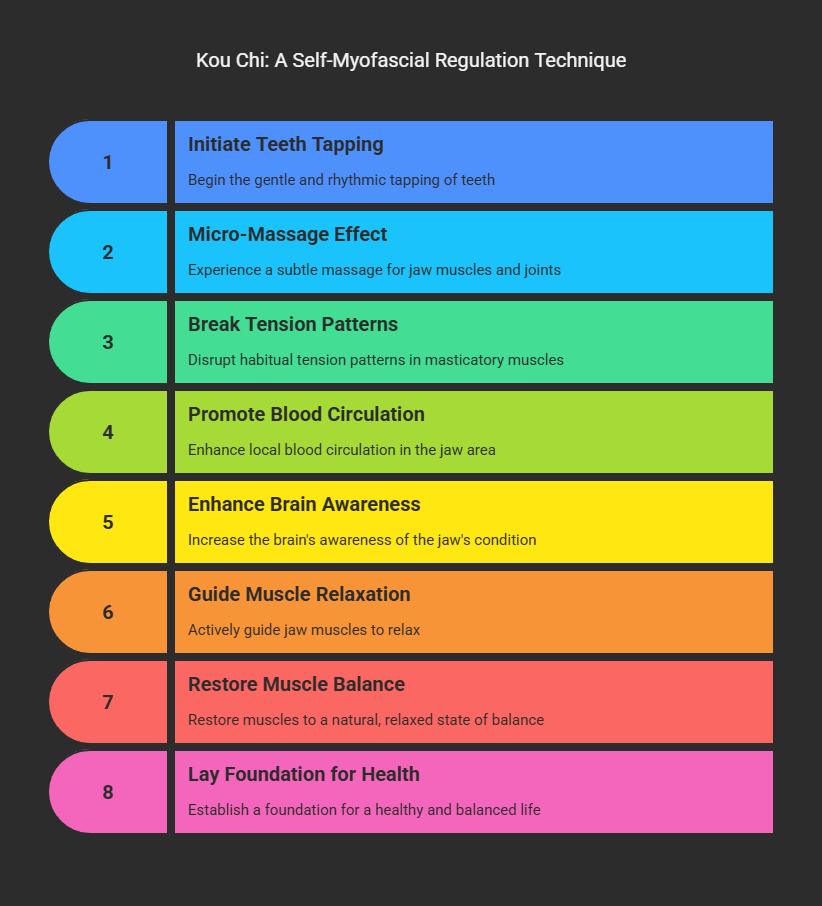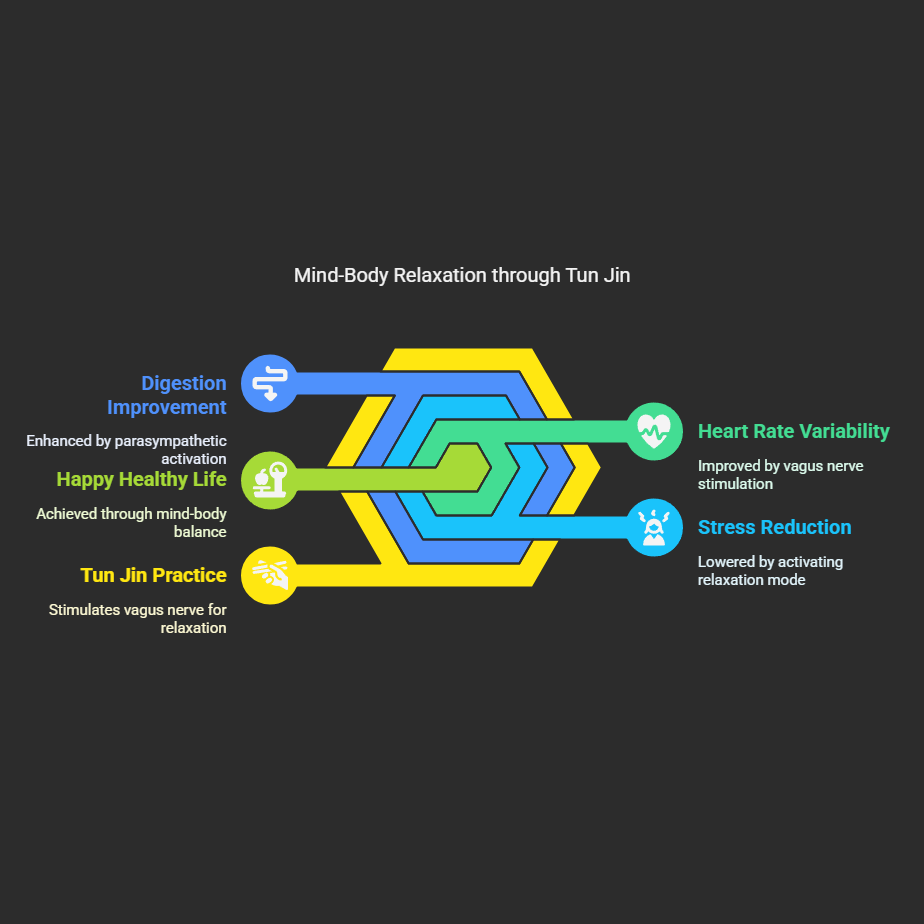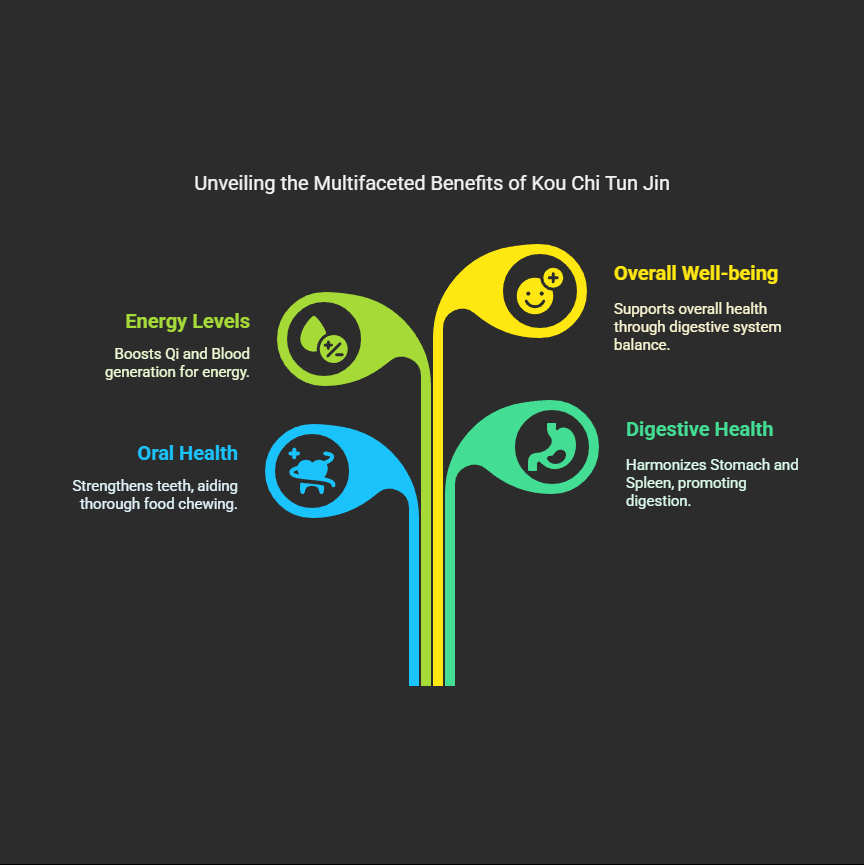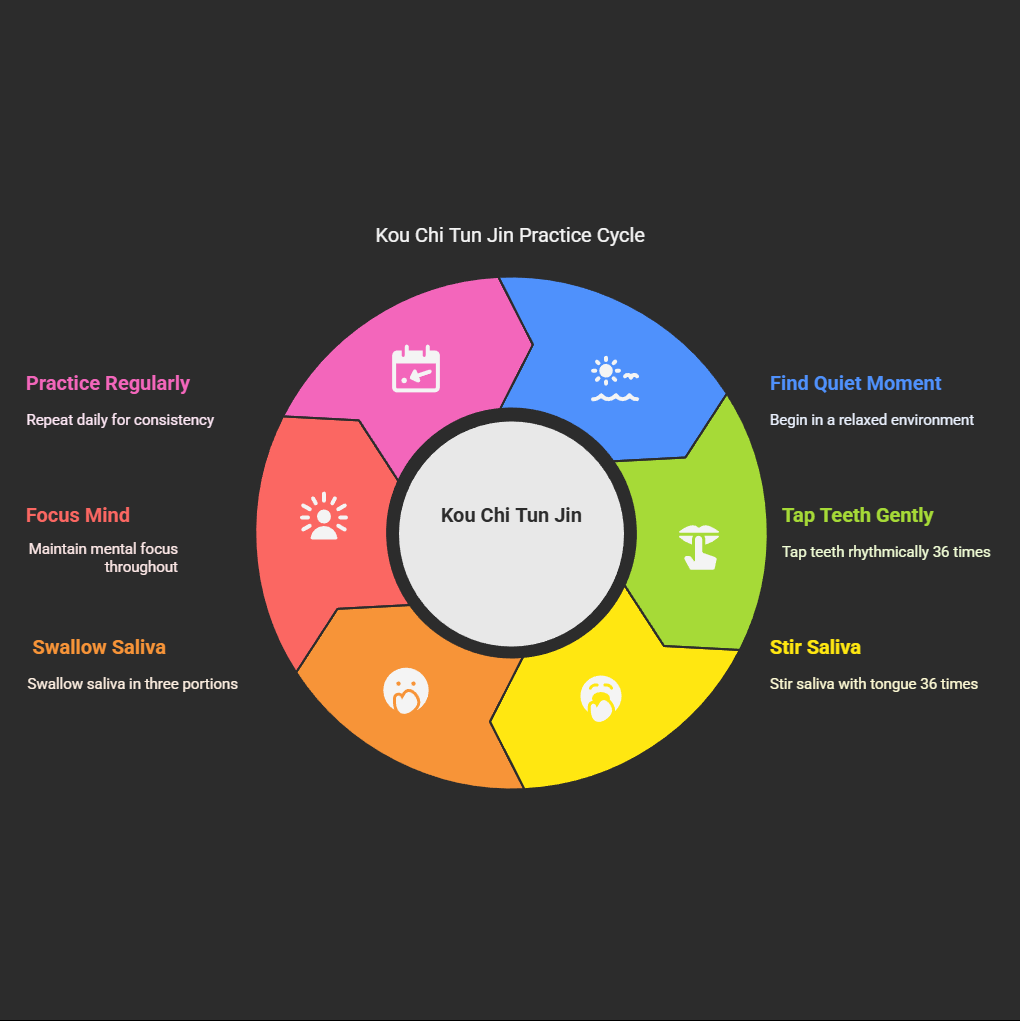Hello, I am your Massage Therapist. In my many years of clinical practice, I have come to deeply understand that a 'Happy Healthy Life' is not an unattainable dream, but rather stems from insight into the body's subtle needs and daily meticulous care.The fast pace and invisible stress of modern life often leave our minds and bodies in a tense state; stiff shoulders and neck, an aching lower back, or even unexplained fatigue can all be warning signals from the body. As a Massage Therapist, I am dedicated to relieving these discomforts through professional techniques, but I hope even more to guide everyone in discovering their own hidden self-healing potential, mastering simple and easy health maintenance methods, and integrating 'Happy Healthy' principles into daily life.Today, I want to share with you an ancient yet profoundly relevant piece of wellness wisdom – 'Tapping Teeth and Swallowing Saliva' (Kou Chi Tun Jin) – and analyse from a professional massage therapy perspective how it contributes to our mind-body balance and vitality.
'Kou Chi Tun Jin' (Tapping Teeth and Swallowing Saliva), a traditional Chinese wellness method with a long and established history, may sound somewhat quaint, but the physiological significance it embodies coincidentally aligns with the mind-body integration we pursue in massage therapy.Many people may not have noticed that the jaw area, which we use for speaking and chewing, is actually an 'invisible warehouse' where the body bears and accumulates stress. Long-term mental stress, unconscious jaw clenching, or even night-time teeth grinding (bruxism) can all lead to an overload of the masticatory muscles (such as the masseter and temporalis muscles), triggering a series of chain reactions.As Massage Therapists, we frequently treat headaches, neck discomfort, and even temporomandibular joint (TMJ) dysfunction caused by jaw tension. Therefore, any method that can gently release pressure in this area deserves our attention and exploration.
The action of 'Kou Chi' (Tapping Teeth) – that is, gently and rhythmically tapping the upper and lower teeth together – from a massage therapy perspective, is undoubtedly a subtle form of self-myofascial regulation and proprioceptive awakening. It's not merely a movement of the teeth, but more like a micro-massage for the jaw muscles and joints.This gentle vibration and stimulation helps to break the habitual patterns of tension in the masticatory muscles formed by chronic stress, promotes local blood circulation, and enhances the brain's awareness of the jaw's condition.When we consciously perform teeth tapping, it's akin to actively guiding the jaw muscles to relax. This shares some similar principles with Proprioceptive Neuromuscular Facilitation (PNF) techniques we often use in treatment, aiming to re-educate muscles and restore them to a more natural, relaxed state of balance, laying the foundation for a true 'Happy Healthy Life'.

The health of your jaw area impacts far more than just your mouth and its surroundings. From a holistic myofascial perspective, the jaw is intricately connected with the neck, cranium (skull), shoulders and back, and indeed the entire body's fascial network. This means that continuous tension in the jaw, like a tightened knot, can transmit this tension to other parts of the body, triggering problems such as cervical spine discomfort, tension headaches, and shoulder stiffness.Therefore, relieving jaw pressure through a simple action like 'Kou Chi' (Tapping Teeth) has benefits that can radiate. When the jaw muscles are relaxed, pressure on the cervical spine is reduced, and Qi and Blood circulation in the head improves, one can naturally feel a sense of ease from head to toe.This is precisely the subtle ingenuity of 'Kou Chi Tun Jin' as a holistic wellness method; it reminds us that minor local adjustments can also bring about systemic positive changes.
Next, let's talk about 'Tun Jin' (Swallowing Saliva). Traditional Chinese Medicine (TCM) lauds saliva as 'Golden Fluid, Jade Liquor,' regarding it as a precious essence that nourishes the Five Zang and Six Fu organs (TCM organ systems).Examined from a modern scientific perspective, the importance of saliva is equally significant. It is not only a natural lubricant for the oral cavity but is also rich in various digestive enzymes (such as salivary amylase, which initiates preliminary digestion), antibacterial substances (like lysozyme and lactoferrin), and various minerals. These components are all crucial for maintaining oral health, protecting teeth and mucous membranes, and assisting the digestive process.When practising 'Kou Chi Tun Jin,' the stirring action of the tongue within the oral cavity (anciently called 'Jiao Hai' – Stirring the Sea) can effectively stimulate the salivary glands, causing them to secrete more abundant saliva. The subsequent 'Tun Jin' (swallowing saliva) action then ensures these beneficial components are fully absorbed and utilised by the body.
The act of 'Tun Jin' (Swallowing Saliva) itself is also closely related to a key mechanism for our mind-body relaxation – the function of the vagus nerve. The vagus nerve is a major pathway of the parasympathetic nervous system (responsible for 'rest and digest' functions) and plays a core role in regulating heart rate, respiration, digestion, and emotional states.Swallowing, especially the conscious and slow act of 'Tun Jin,' can gently stimulate the afferent fibres of the vagus nerve in the throat region. This stimulation helps activate the parasympathetic nervous system, guiding the body to switch from the 'fight or flight' stress mode to the 'rest and digest' relaxation mode.Therefore, practising 'Tun Jin' not only nourishes the body but is also like an internal 'nerve SPA,' helping to reduce stress, improve digestion, and even positively influence Heart Rate Variability (HRV). This is precisely the mind-body balance that is central to a 'Happy Healthy Life'.

Traditional Chinese Medicine (TCM) holds that 'the Kidney is the foundation of the prenatal constitution,' and that 'teeth are the surplus of bone and an outward manifestation of the Kidney.' This implies that dental health is closely related to the abundance of Kidney Qi. Through the moderate stimulation of teeth and gums by 'Kou Chi' (Tapping Teeth), the Kidney's meridian Qi can be indirectly stimulated and invigorated.From a broader health perspective, the TCM 'Kidney' system is not only related to urogenital functions but also encompasses the body's growth, development, reproduction, and overall life force. When we talk about 'strengthening the Kidneys' (Gu Shen), we are essentially emphasising the maintenance of the body's fundamental energy and its resilience to stress.This aligns with the goals of massage therapy, which, through manual techniques, aims to improve circulation, promote repair, and enhance individual vitality, thereby strengthening the overall level of health. Therefore, the Kidney-strengthening effect of 'Kou Chi Tun Jin' (Tapping Teeth and Swallowing Saliva) can be understood as a way to enhance the fundamental driving force of life.
The benefits of 'Kou Chi Tun Jin' (Tapping Teeth and Swallowing Saliva) are not limited to the oral cavity and the Kidneys (TCM organ system). Traditional Chinese Medicine (TCM) also mentions that this method can 'strengthen the Spleen, harmonise the Stomach, and promote digestion' (Jian Pi He Wei, Cu Jin Xiao Hua).The Spleen and Stomach are lauded in TCM as 'the foundation of the postnatal constitution, the source of Qi and Blood generation'. Strong teeth help to chew food more thoroughly, reducing the burden on the gastrointestinal system, while enzyme-rich saliva can assist the transport and transformation functions of the Spleen and Stomach (key TCM digestive processes).From a massage therapy perspective, the health of the digestive system is the cornerstone of overall health. Abdominal massage is one of the techniques we commonly use, aiming to promote intestinal peristalsis and improve digestion and absorption. And 'Kou Chi Tun Jin', as an internal method of conditioning, complements external physical therapies. Together, they maintain the smooth functioning of the digestive system, ensuring the body can effectively absorb nutrients and providing sufficient energy for a 'Happy Healthy Life'.

The benefits of this method for 'strengthening bones, benefiting the brain, and refreshing the spirit' also deserve our attention. In Traditional Chinese Medicine (TCM) theory, the principle that 'the Kidney governs bones, produces marrow, and connects to the brain' reveals the key role of Kidney essence (Jing) in bone health and brain function. Long-term adherence to 'Kou Chi Tun Jin' (Tapping Teeth and Swallowing Saliva) helps to ensure Kidney essence is abundant, thereby nourishing bones, benefiting the brain, and nourishing marrow.In massage therapy practice, we often encounter musculoskeletal problems caused by poor posture or chronic strain, as well as difficulty concentrating and a diminished mental state due to excessive stress. Through simple self-care methods like 'Kou Chi Tun Jin,' combined with regular massage treatments, not only can local discomfort be improved, but the body's self-healing ability and mental clarity can also be fundamentally enhanced, leaving one feeling refreshed and clear-headed, with agile thinking.
To further enhance the wellness effects of 'Kou Chi Tun Jin' (Tapping Teeth and Swallowing Saliva), especially in promoting jaw relaxation and improving Qi and Blood circulation in the head and face, we can combine it with simple acupoint massage (acupressure).For example, regularly rubbing the 'Jiache acupoint (ST6)', located on the prominence of the masseter muscle, and the 'Xiaguan acupoint (ST7)', in the depression anterior to the tragus at the lower border of the zygomatic arch, helps to directly relax the masticatory muscles and relieve jaw tension. The 'Hegu acupoint (LI4)', in the web between the thumb and index finger on the back of the hand, is an important systemic point for pain relief and regulating the Qi mechanism, with good effects on head and face discomfort. The 'Yifeng acupoint (SJ17/TE17)', posterior to the earlobe, and the 'Tinggong acupoint (SI19)', anterior to the centre of the tragus, help to clear Qi and Blood in the head and neck and improve circulation around the ear and temporomandibular joint (TMJ) area.Before or after practising 'Kou Chi Tun Jin,' or during daily leisure time, gently pressing these acupoints with your finger pads for 1-2 minutes each can provide an added benefit, like 'adding flowers to brocade' (making something already good even better).
Mastering the correct method of 'Kou Chi Tun Jin' (Tapping Teeth and Swallowing Saliva) is very simple: Firstly, find a quiet moment and relax your mind and body. Lightly close your lips, and gently and rhythmically tap your upper and lower teeth together about 36 times; the force should be comfortable for your teeth.Afterwards, use your tongue to stir along the gums and tooth surfaces inside your mouth about 36 times – this is known as 'Jiao Hai' (Stirring the Sea). Once saliva fills your mouth, slowly swallow it in three portions, visualising (or imagining) the saliva going directly to the Dantian in your abdomen.Throughout the process, your mind should be focused, and your movements gentle. You can practise this daily in the morning and evening, or at any convenient time; consistency is key.If you have poor dental conditions, be sure to proceed according to your capability (or 'within your limits') or consult a professional (such as your dentist). This meticulous care for the body and inner awareness is itself a practice towards achieving a 'Happy Healthy Life'.

As a Massage Therapist, I have always believed that true health stems from the daily, gradual accumulation of small efforts. 'Kou Chi Tun Jin' (Tapping Teeth and Swallowing Saliva), this piece of ancient wisdom, is a vivid embodiment of this concept.It requires no special equipment and is not limited by place or time, yet it can ingeniously mobilise the body's self-healing mechanisms, leading to benefits ranging from jaw relaxation and digestive system enhancement, to an overall boost in energy. When we integrate such a simple yet profound practice into our lives, we are continuously making deposits into our own 'health bank'.This is not just a physical exercise, but more so a life attitude – a wisdom of living in harmony with one's body.
The core of a 'Happy Healthy Life' lies in 'active participation' and 'consistent practice'. Besides relying on professional massage therapy to address existing discomforts, what's more important is learning to listen to your body's signals and mastering some simple yet effective self-care methods. 'Kou Chi Tun Jin' (Tapping Teeth and Swallowing Saliva) is an excellent starting point for this.It reminds us that even the smallest daily habits, if practised consistently, can build into a powerful force for health. I hope today's sharing can open a door for you to a 'Happy Healthy Life' of mind-body harmony and abundant vitality, allowing you, even in your busy daily life, to easily 'tap' open health and joy.If you have any questions or need further guidance, you are always welcome to discuss them with your Massage Therapist.



